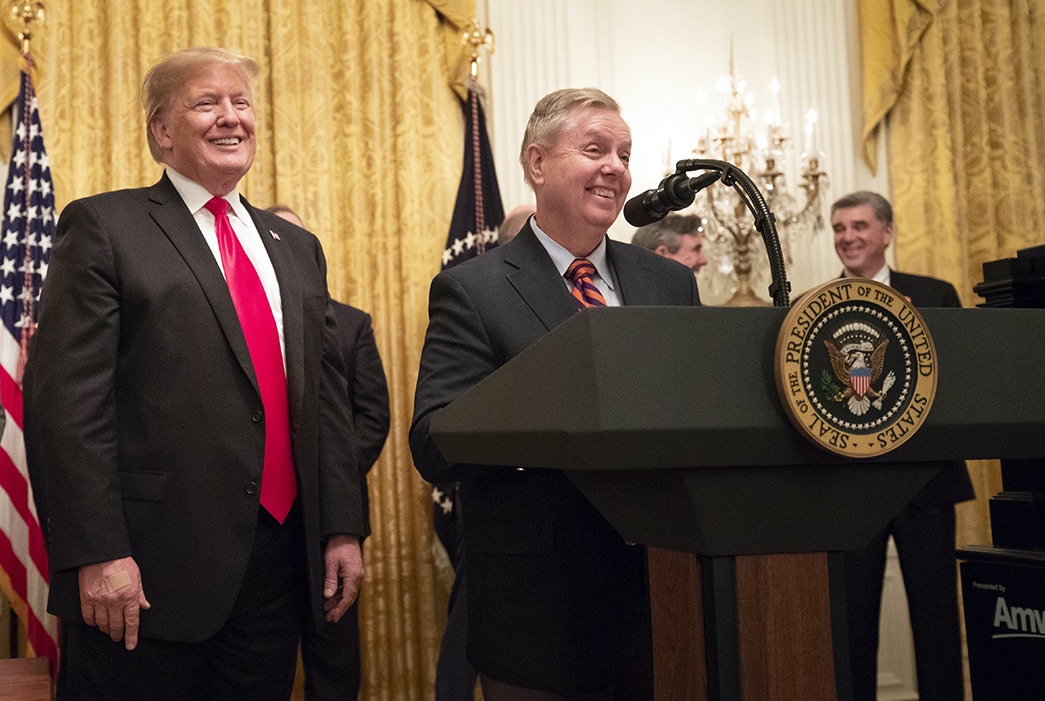
Emergency DOCKET
on Oct 21, 2022
at 7:40 pm

Sen. Lindsey Graham, joined by President Donald Trump, speaks at the White Dwelling in 2019. (White Dwelling photograph)
Sen. Lindsey Graham, a Republican from South Carolina, questioned the Supreme Court docket on Friday to block a Georgia grand jury from questioning him about telephone phone calls immediately after the 2020 election to Georgia Secretary of State Brad Raffensperger and his workers. Fulton County District Legal professional Fani Willis would like to inquire Graham about the calls, in which he allegedly reviewed the state’s absentee-ballot method and allegations of voter fraud, as element of her investigation into attainable election interference by former President Donald Trump and his allies.
Democrat Joe Biden won Ga by a slim margin in 2020. In a January 2021 discussion with Raffensperger, Trump claimed that voter fraud was rampant in the point out and instructed that he experienced received by a half-million votes. Trump urged Raffensperger to “find” plenty of votes to give him a victory in Georgia.
Just after Willis’ office environment issued a subpoena for Graham’s testimony in August, Graham transferred the dispute more than initiatives to receive his testimony to federal courtroom. He argued that the Constitution’s “speech or debate” clause shields him from having to testify. That clause shields members of Congress from struggling with inquiries about their “speech or discussion.”
A federal district court in Georgia dominated that Graham could not be questioned about parts of the phone calls in which he was inquiring queries relevant to the certification of the 2020 election. But he could be questioned about other topics, such as his intent in boosting the issues and his communications with the Trump marketing campaign. When the U.S. Court of Appeals for the 11th Circuit declined to block Graham’s testimony, Graham came to the Supreme Courtroom.
Represented by Don McGahn, who served as White House counsel to Trump, Graham contended that less than the speech or debate clause, he are unable to be questioned about his phone calls to Raffensperger and his staff members, mainly because the calls were being part of his operate as a senator – for instance, the impending vote on no matter whether to certify the 2020 election and his part as the chair of the Senate Judiciary Committee, which considers troubles relating to elections. If his testimony is not place on keep, Graham argued, he will have no cure for the constitutional violation that he will endure: requiring him to testify regardless of the speech or debate clause.
Graham’s request went to Justice Clarence Thomas, who fields crisis appeals from the 11th Circuit. Thomas can possibly act on the request himself or as an alternative refer it to the whole court docket.
This short article was at first revealed at Howe on the Court docket.




